
The CaymanIslands is a self-governing British Overseas Territory, and the largest by population. The 264-square-kilometre (102-square-mile) territory comprises the three islands of Grand Cayman, Cayman Brac and Little Cayman, which are located south of Cuba and north-east of Honduras, between Jamaica and Mexico's Yucatán Peninsula. The capital city is George Town on Grand Cayman, which is the most populous of the three islands.
This is a demography of the population of the Cayman Islands including population density, ethnicity, religious affiliations and other aspects of the population.
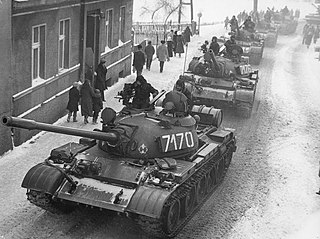
Martial law is the replacement of civilian government by military rule and the suspension of civilian legal processes for military powers. Martial law can continue for a specified amount of time, or indefinitely, and standard civil liberties may be suspended for as long as martial law continues. Most often, martial law is declared in times of war and/or emergencies such as civil unrest and natural disasters. Alternatively, martial law may be declared in instances of military coup d'états.

The British Overseas Territories (BOTs) are the 14 territories with a constitutional and historical link with the United Kingdom that, while not forming part of the United Kingdom itself, are part of its sovereign territory. The permanently inhabited territories are delegated varying degrees of internal self-governance, with the United Kingdom retaining responsibility for defence, foreign relations and internal security, and ultimate responsibility for good governance. All of the territories are inhabited by civilians, except three that are chiefly or only inhabited by military or scientific personnel. All fourteen have the British monarch as head of state. These UK government responsibilities are assigned to various departments of the Foreign, Commonwealth and Development Office and are subject to change.

A Bantustan was a territory that the National Party administration of South Africa set aside for black inhabitants of South Africa and South West Africa, as a part of its policy of apartheid.

In the United States, an executive order is a directive by the president of the United States that manages operations of the federal government. The legal or constitutional basis for executive orders has multiple sources. Article Two of the United States Constitution gives presidents broad executive and enforcement authority to use their discretion to determine how to enforce the law or to otherwise manage the resources and staff of the executive branch. The ability to make such orders is also based on expressed or implied Acts of Congress that delegate to the president some degree of discretionary power. The vast majority of executive orders are proposed by federal agencies before being issued by the president.

Before European colonization, the Turks and Caicos Islands were inhabited by Taíno and Lucayan peoples. The first recorded European sighting of the islands now known as the Turks and Caicos occurred in 1512. In the subsequent centuries, the islands were claimed by several European powers with the British Empire eventually gaining control. For many years the islands were governed indirectly through Bermuda, the Bahamas, and Jamaica. When the Bahamas gained independence in 1973, the islands received their own governor, and have remained a separate autonomous British Overseas Territory since. In August 2009, the United Kingdom suspended the Turks and Caicos Islands' self-government following allegations of ministerial corruption. Home rule was restored in the islands after the November 2012 elections.
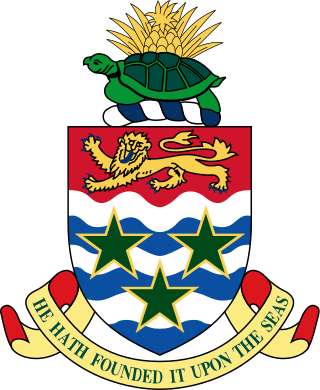
The Premier of the Cayman Islands is the political leader and head of government. The post of premier in the Cayman Islands is the equivalent to chief minister or prime minister in other British Overseas Territories. It is the highest political level that can be attained within the British overseas territory. Prior to 2009, the position was known as Leader of Government Business.

Belonger status is a legal classification normally associated with British Overseas Territories. It refers to people who have close ties to a specific territory, normally by birth or ancestry. The requirements for belonger status, and the rights that it confers, vary from territory to territory.

The Parliament of the Cayman Islands is the unicameral legislature of the British Overseas Territory of the Cayman Islands. It is composed of 21 members; 19 elected members for a four-year term and two members ex officio.
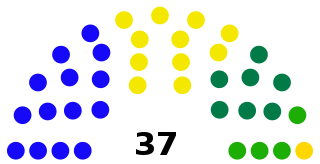
The Eastern Provincial Council is the provincial council for the Eastern Province in Sri Lanka. In accordance with the Sri Lankan constitution, EPC has legislative power over a variety of matters including agriculture, education, health, housing, local government, planning, road transport and social services. The constitution also gives it powers over police and land but successive central governments have refused to devolve these powers to the provinces. EPC has 37 members elected using the open list proportional representation system.

Lesbian, gay, bisexual, and transgender (LGBT) people in the Cayman Islands may face legal challenges not experienced by non-LGBT residents. Both male and female types of same-sex sexual activity are legal in the Cayman Islands. Despite anti-gay attitudes expressed by certain members of the government, social acceptance by the Caymanian public has been known to be some of the best in the Caribbean. Some have attributed this to the strong British influence in the territory.

The politics of Saint Helena, Ascension and Tristan da Cunha operate under the jurisdiction of the government of the United Kingdom. The three parts of the territory—Saint Helena, Ascension Island and Tristan da Cunha—effectively form an asymmetric federacy and collectively constitute one of United Kingdom's fourteen overseas territories.

The Cayman Islands, a British Overseas Territory located in the western Caribbean Sea, came under British control in 1670, as a dependency of Jamaica, continuing in that status until 1962.
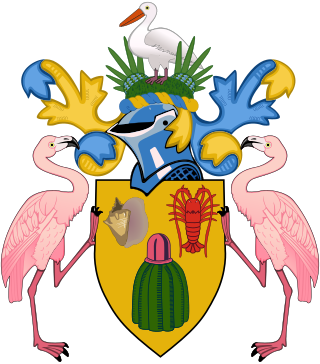
The Constitution of the Turks and Caicos Islands, in its present form, was passed in 2011.

Among the fourteen British Overseas Territories, eight – Akrotiri and Dhekelia, the British Antarctic Territory, the British Indian Ocean Territory, the Falkland Islands, Gibraltar, the Pitcairn Islands, Saint Helena, Ascension and Tristan da Cunha, and South Georgia and the South Sandwich Islands – recognise and perform same-sex marriages. In the Sovereign Base Areas of Akrotiri and Dhekelia, only British military and civilian personnel can enter into same-sex marriages and civil partnerships.

The Falkland Islands general election of 2021 was held on Thursday 4 November 2021 to elect all eight members of the Legislative Assembly through universal suffrage using block voting, with the Chief Executive of the Falkland Islands acting as returning officer. It was the fourth election since the new Constitution came into force replacing the Legislative Council with the Legislative Assembly.
Same-sex marriage is currently not recognised in the Cayman Islands. The island's statutory law limits marriage to different-sex couples. A lawsuit with the Grand Court successfully challenged this ban in March 2019; however, the Court of Appeal overturned the ruling in November 2019. Same-sex civil partnerships are legal following the enactment of the Civil Partnership Law, 2020 on 4 September 2020.

General elections were held in Anguilla on 29 June 2020. Due to the COVID-19 pandemic, an Order in Council was made to allow the elections to be postponed until 11 September at the latest. However it was not invoked.
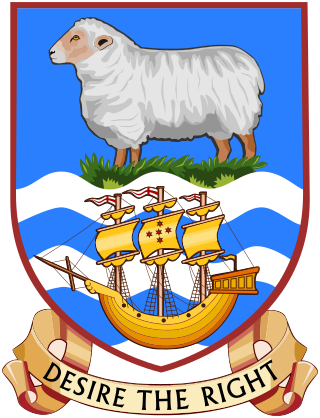
The next Falkland Islands general election will elect all eight members of the Legislative Assembly through universal suffrage using block voting, with the Chief Executive of the Falkland Islands acting as returning officer. It will be the fifth election since the new Constitution came into force replacing the Legislative Council with the Legislative Assembly.

















